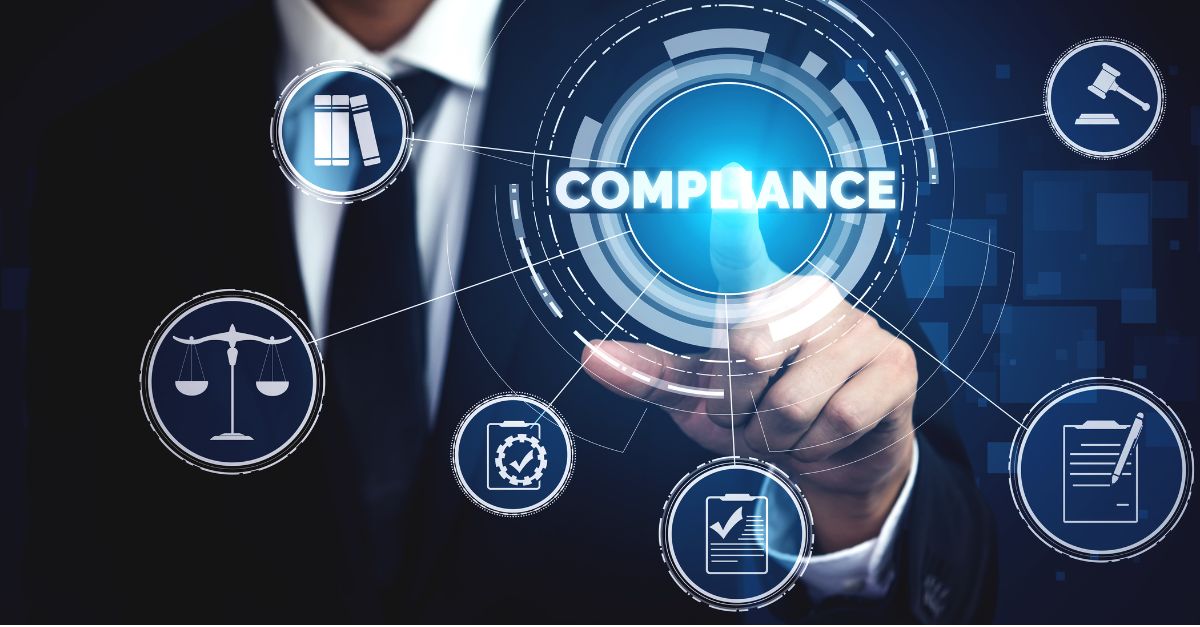Imagine a credit reporting bureau managing a consumer’s credit history without proper fact-checking, data protection controls, and data subject rights policies. The resulting report fails to give an accurate picture of consumers’ creditworthiness, depriving them of the opportunity to get access to their report, obtain loans, secure proper employment, or get a place to rent. Here, the Fair Credit Reporting Act (FCRA) exists as a pivotal guardian, regulating credit reporting agencies (CRAs) while protecting consumers’ credit information and rights.
As a consumer reporting agency that manages consumer credit information, it is imperative to grasp the subtleties of the regulation to ensure compliance.
What is the Fair Credit Reporting Act (FCRA)?
FCRA was initially enacted in 1970 to govern the practices of Credit Reporting Agencies while protecting consumers rights. It ensures that CRAs maintain the credit information of consumers in a fair and accurate manner and fulfill their rights to gain access to their credit information, place dispute violations, or set fraud alerts. In 2003, the regulation received amendment under the Fair and Accurate Credit Transactions Act (FACTA). The amended regulation provided enhanced provisions and added rights to consumers and identity theft victims.
The FCRA regulation's main aim is transparency of consumer credit information and accuracy. FCRA compliance demonstrates a business’s fair and reliable practices in handling and managing consumer credit information. Accurate handling of information may result in fair decision-making, which is ultimately beneficial for both the business and the consumer.
Non-compliance with FCRA may result in not only fines of up to $1000, exclusive of punitive damages and other costs but also imprisonment.
Who Needs to Comply with FCRA?
FCRA applies to Consumer Reporting Agencies. The FCRA defines CRAs as persons or entities that collect, maintain, and disseminate consumer financial information. The CRAs further furnish consumer credit reports to third parties on a cooperative nonprofit basis or for any monetary fees, such as insurance companies or other inspection bureaus. Depending on the nature of the business, other entities can also be considered CRAs, such as tenant screening and approval agencies.
Public Key Infrastructure (PKI) security helps businesses follow the FCRA by making sure credit information is safe and private. It uses cryptographic technology to protect data from being stolen. The FCRA requires businesses to handle credit information carefully and keep it private. By using PKI, businesses can build trust with their customers and ensure the security of their credit information, adhering to FCRA requirements.
FCRA Consumer Rights Overview
FCRA grants a number of rights to consumers and the victims of identity fraud, including the following:
- Get access to credit information: Consumers have the right to access their credit report information to check for inaccuracies or any other fraudulent activities. Consumers can receive a copy of their reports at no cost once in a 12-month period.
- Receive notification if the report is used against the consumer: Consumers have the right to be told about any adverse action that’s been taken against them due to the report, along with the name and contact information of the CRA.
- Request credit details: Consumers have the right to ask the CRA for the credit scores provided in the credit files. In some cases, these requests can be made free of charge, such as in the case of mortgage transactions.
- File a dispute against incorrect information: The consumer may file a dispute with the CRA to investigate any inaccurate information.
- Request for the deletion of inaccurate information: The consumer may request the agency to remove any inaccurate or incomplete information.
- Place access limit on the report: In some situations, the bureau may place a limit on the duration for certain types of information to be reported. For instance, CRA shall not disclose in the report bankruptcy cases if they occurred more than ten years before the report.
- Right to be asked for consent: Consumer has the right to be asked for consent before their information or report is requested for any employment purposes.
- Right to place ‘security freeze’: Consumers can place a “security freeze” on their reports.
- Right to seek damages: The consumer may file a dispute against any furnisher of the report or CRA in an FCRA violation.
The following rights are exclusive to identity fraud victims:
- Place fraud alert: As soon as a consumer becomes aware of a fraud, they may place a fraud alert on their report.
- Receive a free copy of the report: Fraud alert victims may request CRAs for a free copy of their report.
- Receive information regarding fraudulent dealings: Consumers have the right to be told about any fraudulent dealings based on the information in their report.
- Block information used in identity theft: Consumers may block their credit report information, which is used in fraud.
- Limit businesses from reporting information: Consumers may ask CRAs to limit reporting the credit report details.
Responsibilities of Credit Reporting Agencies (CRAs)
The FCRA provides a comprehensive list of compliance requirements for CRAs, compiled under Sections 601 to 628. Let’s look at the summarized version of the most critical sections of the regulation.
Use Credit Reports for Only Permissible Purposes
Reports can be furnished for specific reasons like court orders, written consent from the consumer, employment background checks, credit transactions, insurance underwriting, determining eligibility for licenses, or other legitimate business needs.
Prevent Identity Theft
- Consumers can place fraud alerts on their reports to prevent misuse after identity theft.
- Types of alerts include one-call fraud alerts, extended fraud alerts, and active duty alerts.
- CRAs must place a security freeze on reports upon consumer request, notifying third parties of the freeze to restrict report usage.
Ensure Compliance Procedures
- CRAs must adhere to proper practices for collecting, maintaining, and distributing credit reports.
- hey need to verify the identity of report recipients and ensure report accuracy while allowing third-party report furnishing.
Disclose Requested Information to Verified Consumers
CRAs must provide a free credit report annually to consumers who verify their identity through SSN, including sources and contact information of data furnishers.
Thoroughly Investigate Disputed Information
Upon a dispute by a consumer regarding report accuracy, CRAs are required to reinvestigate promptly and correct or delete inaccurate information at no charge.
Penalty for FCRA Compliance Violations
In the event of non-compliance with any FCRA provision, the violator can be held responsible. The penalties for FCRA non-compliance may include actual loss suffered by the consumer, punitive damages, and reasonable attorney’s fees. The regulation provides details regarding different types of violations and the associated penalties.
- Willful non-compliance: If a person willfully violates any provisions of the FCRA, they will be held accountable to the consumer for the total sum of not less than $100 to not more than $1,000.
- Negligent violation: If a person demonstrates negligence by violating any FCRA provision, they will be held liable for the amount of actual damages incurred by the consumer, punitive damages, and the attorney’s fee in the event of successful court rulings.
- False pretenses: If a person obtains a consumer’s credit information from a CRA under false pretenses, they will be subject to a fine of not less than $100 to not more than $1,000, whichever is greater, or imprisonment of up to 2 years, or both.
- Unauthorized disclosure: If any personnel of the CRA discloses consumer information to any unauthorized person, they will be subject to a fine, imprisonment of not more than 2 years, or both.
The Role of PKI Security in Ensuring Business Compliance
- Ensures Data Privacy and Security: PKI security protects sensitive business and customer data by encrypting it, making sure that only authorized individuals can access the information. This is crucial for compliance with data protection laws.
- Identity Authentication: It verifies the identities of individuals and devices, ensuring that communication and transactions are legitimate. This authentication is important for complying with regulations that require identity verification.
- Enhances Trust in Digital Transactions: By securing digital transactions with encryption and digital signatures, PKI helps businesses comply with e-commerce regulations and standards, building trust with customers and partners.
- Supports Regulatory Compliance: Many regulations and standards, including GDPR, HIPAA, and PCI-DSS, require strict data security measures. PKI helps businesses meet these requirements by providing a robust security framework.
- Prevents Data Breaches and Fraud: PKI reduces the risk of data breaches and fraud, which is critical for compliance. Businesses that fail to protect data can face heavy fines and damage to their reputation.
- Enables Secure Communications: Secure email and messaging, protected by PKI, are often required by compliance frameworks to ensure that sensitive information remains confidential during transmission.
- Facilitates Digital Signatures: PKI enables the use of digital signatures, which are legally binding in many jurisdictions. This is essential for businesses and organizations to protect their digital communications.
- Ensures Long-Term Data Integrity: PKI can protect the integrity of data over time, ensuring that it has not been tampered with. This is important for compliance in sectors where data must be retained and remain unaltered for long periods.
- Supports Secure Remote Access: With the increase in remote work, PKI enables secure remote access to corporate networks, aligning with compliance requirements for secure access management.
- Adaptable to Evolving Regulations: As regulatory environments change, PKI provides a flexible and scalable security infrastructure that can adapt to new compliance requirements, ensuring that businesses remain compliant over time.
In summary, PKI ensures secure communication, authentication and data protection which are critical components for upholding FCRA compliance. By adhering to PKI best practices, organizations can maintain trust and uphold regulatory requirements.
Note: This blog article was written by a guest contributor for the purpose of offering a wider variety of content for our readers. The opinions expressed in this guest author article are solely those of the contributor and do not necessarily reflect those of GlobalSign.







